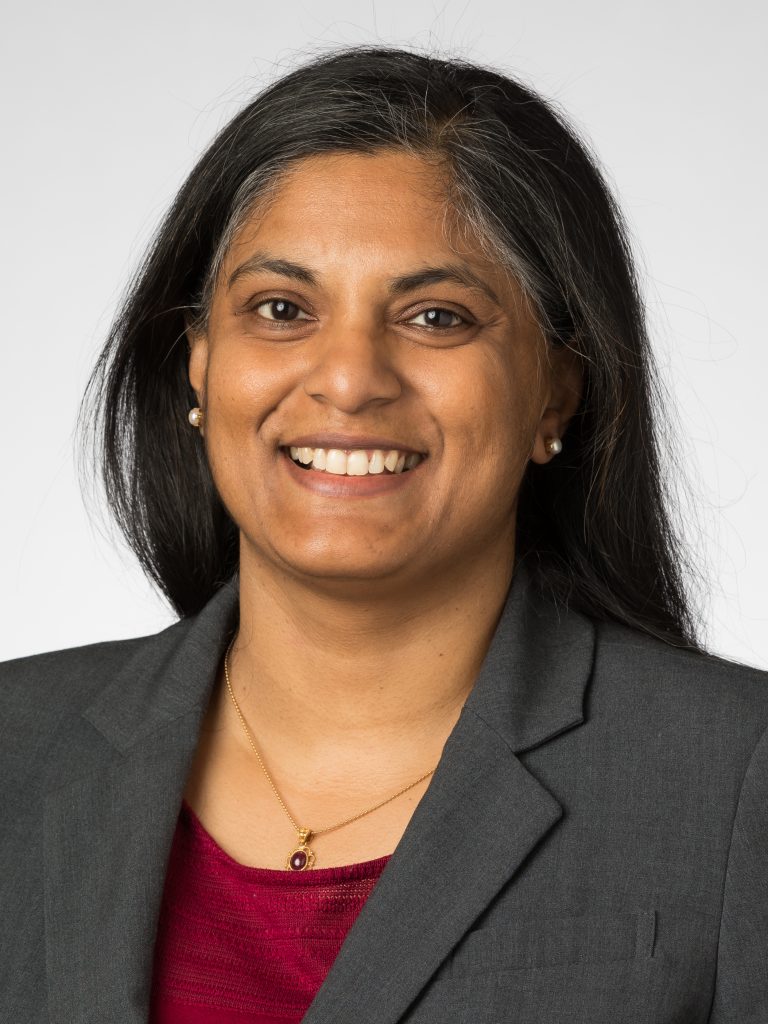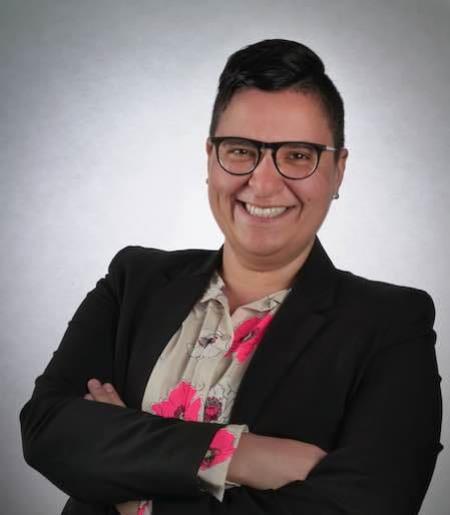Who Is Reaching Out? A Look at Help-Seeking Behaviors and Family Dynamics
Nirupama Devaraj, Ph.D., associate professor of economics and associate dean of graduate studies and online education and Margarita Rayzberg, Ph.D., assistant professor of sociology and criminology, are collaborating on an interdisciplinary project looking into the impact of differing family structures on the help-seeking behaviors of women experiencing intimate partner violence in India. This research has earned the project a $500 Faculty Research Award from the Indiana Academy of Social Sciences for Professor Rayzberg, which will be used to present this research at the Midwest Sociological Society’s annual conference in 2024.
There are two primary types of family structure prevalent in India: joint family structure, in which the extended family all live together in closer proximity, and nuclear families, which are closer to the typical household consisting of two adult parents and their children. Preliminary data indicate that women experiencing intimate partner violence in a joint family situation exhibit a lower rate of help-seeking behaviors from formal and institutional sources, a phenomenon that caught the attention of Professor Devaraj.
“I have been searching for an explanation for the low rates of labor force participation in India, compared to its peers and found that a primary explanation does not even pertain to economics. Cultural factors pertaining to patriarchy and the preservation of patriarchal structures are inherent towards women’s place in the family and the use of violence to maintain the status quo,” Professor Devaraj says. “I find the question interesting because interpersonal violence within the family, especially directed at women, has implications for their participation in society, gender wealth inequality and, the mental and physical well-being of future generations.”
Professor Devaraj, a scholar whose work primarily focuses on quantitative research in social and pedagogical issues in economics, contacted Professor Rayzberg to assist with the project. Professor Rayzberg, who brought a wealth of knowledge in the field of sociology and experience in qualitative research, was only too happy to join.
“I like interdisciplinary work, and I was excited to do it here,” Professor Rayzberg says. “My work is at the intersection of politics of knowledge and international development.”
“Professor Rayzberg is a sociologist whose research extends to developing countries. Though her work has been in Africa, some of the norms around family and gender roles carry over to India as well,” Professor Devaraj says.
As the two set out to research the topic in question, they quickly discovered a major hole in the available literature: a startling lack of prior related research to draw from.
“We’re discovering that no one has really studied how and why family structure can have an impact on any number of things, including help-seeking behavior, but even anthropologists have never really outlined the salient differences between joint and nuclear families,” Professor Rayzberg says. “We’re finding that we’re having to go back and create some things, like an analysis of what’s different between these family structures.”
For Professor Devaraj, the research’s initial findings came as something of a surprise.
“We believed that women in the extended multi-generational family — generally considered more patriarchal — would have less opportunities to seek help relative to nuclear families. However, the initial data seems to suggest that there is no difference at the outset in the limitations placed on women within either family structure,” Professor Devaraj says. She also clarifies that the work is far from over. “We still believe that once we formalize our methodology and systematically analyze the data – these preliminary findings may be amended. ”
While these India-based findings may not be currently applicable to the situations of most women in the United States, shifting economic and cultural norms could make it a topic of future interest.
“We’re seeing family structures in the U.S. shift. We’re seeing more single-parent households, and we’re seeing more extended family arrangements,” Professor Rayzberg says. “Housing is expensive, childcare is expensive, so if the U.S. started to see more extended arrangements, then we could also look at the ways that family structures impact those situations.”
While the $500 Faculty Research Award will help the professors share their findings regionally, they also want to have a draft of their research out for publication by the end of the academic year, or the end of summer, 2024.
“We’re looking at family journals, journals of interpersonal violence, things along those lines,” Professor Rayzberg says. “And we’re always trying to think of ways to disseminate this further.”
One potential avenue for further disseminating their work is by leveraging Professor Devaraj’s contacts in India, one of whom runs an NGO in this specific field, which could lead to further interviews with those directly involved in this phenomenon. Professors Devaraj and Rayzberg also want to share their findings with professionals in India’s women’s advocacy fields.
Professors Devaraj and Rayzberg’s project is an excellent example of interdisciplinary collaboration, one of the facets of Valparaiso University that makes our organization so unique. Tearing down silos and allowing experts of varying backgrounds to work together on these kinds of projects is one of the goals in Uplift Valpo: Our Beacon for the Journey Forward, the University’s five-year strategic plan.


